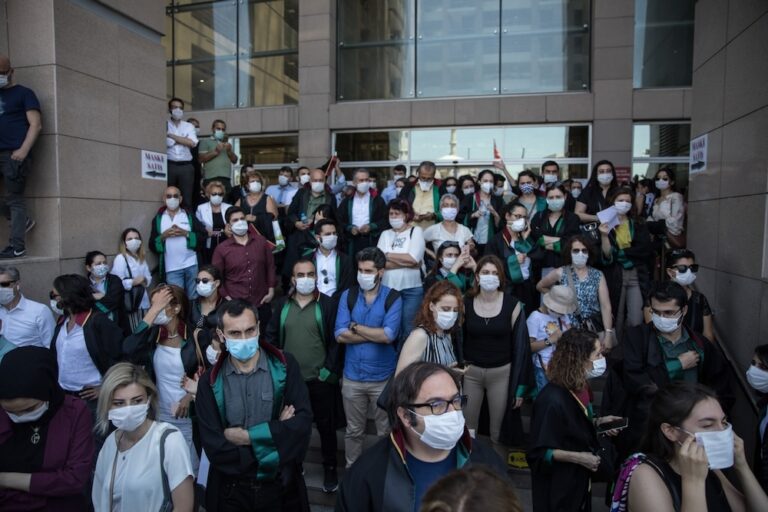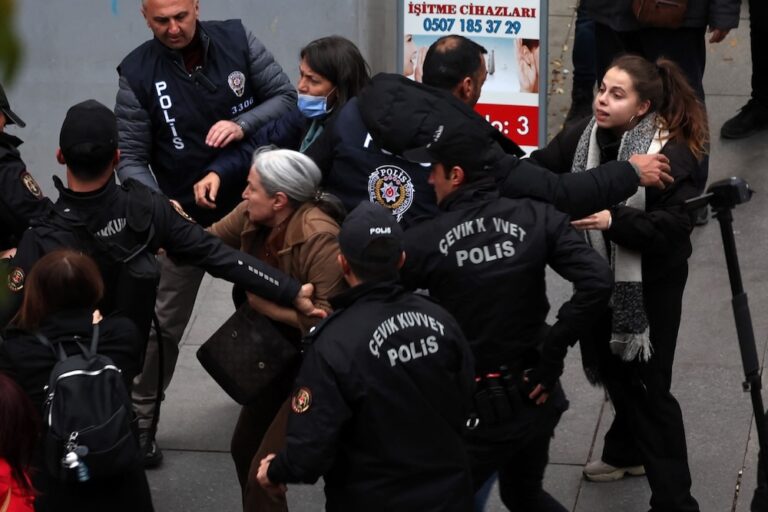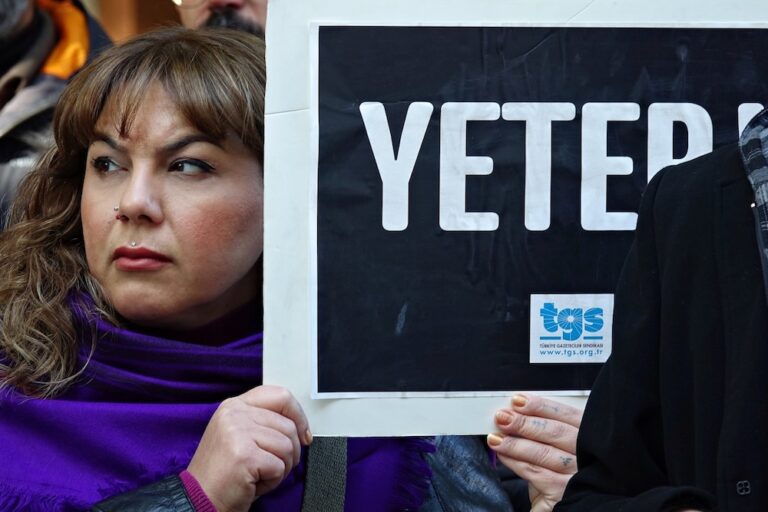(RSF/IFEX) – RSF has called on the National Broadcasting Council (RTÜK) to rescind the one-month suspension it imposed on five television stations on 3 July 2003. The stations are owned by the family of press magnate and politician Cem Uzan. They were suspended for allegedly defending the family’s business interests during broadcasts. RSF described the […]
(RSF/IFEX) – RSF has called on the National Broadcasting Council (RTÜK) to rescind the one-month suspension it imposed on five television stations on 3 July 2003. The stations are owned by the family of press magnate and politician Cem Uzan. They were suspended for allegedly defending the family’s business interests during broadcasts. RSF described the ban as “unfair and disproportionate.”
On 13 and 14 June, the five stations – Star TV, Kanal 6, Star Max, Star 6 Heyecan TV and Footgol Star 8 TV – broadcast a speech delivered by Uzan in the northwestern city of Bursa, in which he criticised the Energy and Natural Resources Ministry for rescinding a contract with Cukurova and Kepez, two power companies owned by his family.
In the same speech, Uzan was also virulent in his criticism of Prime Minister Recep Tayyip Erdogan and his moderate Islamist party, Justice and Development (AK). Uzan heads the Young Party, a newly formed political grouping which, according to some polls, poses a potential threat to the ruling party.
The RTÜK accuses the television stations of “carrying broadcasts defending the unfair interests of their owner, their shareholders and members of the family.” Under Article 4, subsection (c) of the amended news media law (Law 3948), in force since May 2002, the offence is punishable by a one-month broadcasting ban. The prime minister, for his part, has filed a lawsuit against Uzan, accusing him of defamation.
In a letter to RTÜK President Fatih Karaca, RSF Secretary-General Robert Ménard said, “We ask you to reverse your decision, which could be interpreted as a measure of a political nature that is punishing the news media rather than the statements made by Mr. Uzan.” Ménard did acknowledge, however, that the prime minister’s lawsuit “appeared to be legitimate.”
The RTÜK has also asked five other television stations owned by the Uzan Group – Flash TV, Star 4, Star 5, Star 7 and New TV – and another privately-owned station, Habertürk, to “explain their behaviour.” These stations are all accused of the same offence as the other five, but they are also accused of “affront” and of “inciting unfair competition”.
The amendments to the news media law that took effect in May 2002 have reinforced its repressive aspects and strengthened political control of the RTÜK.


